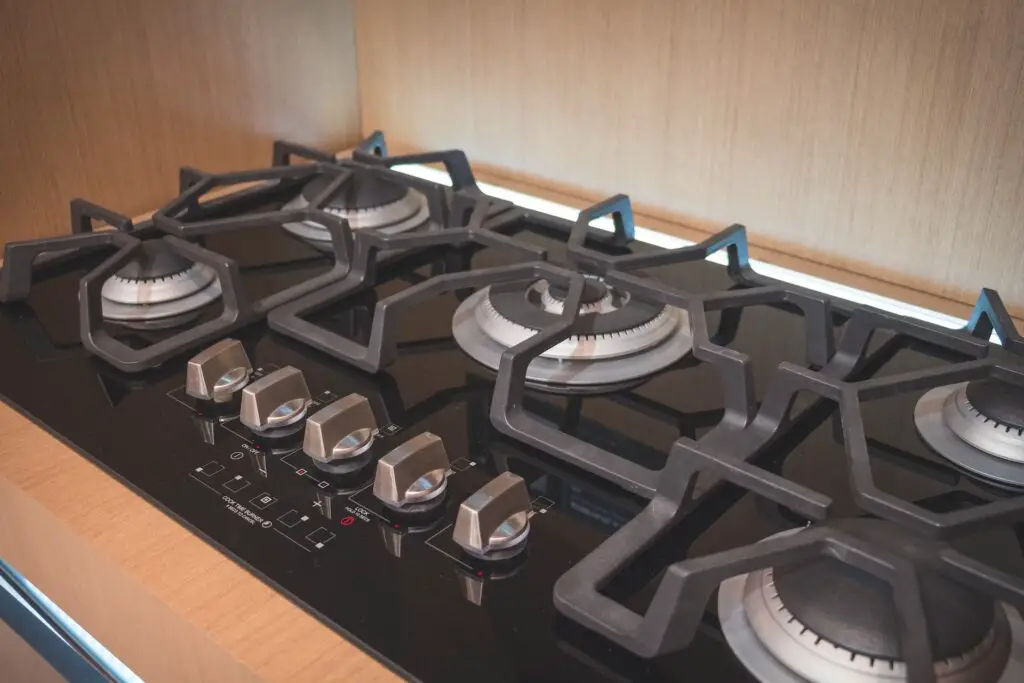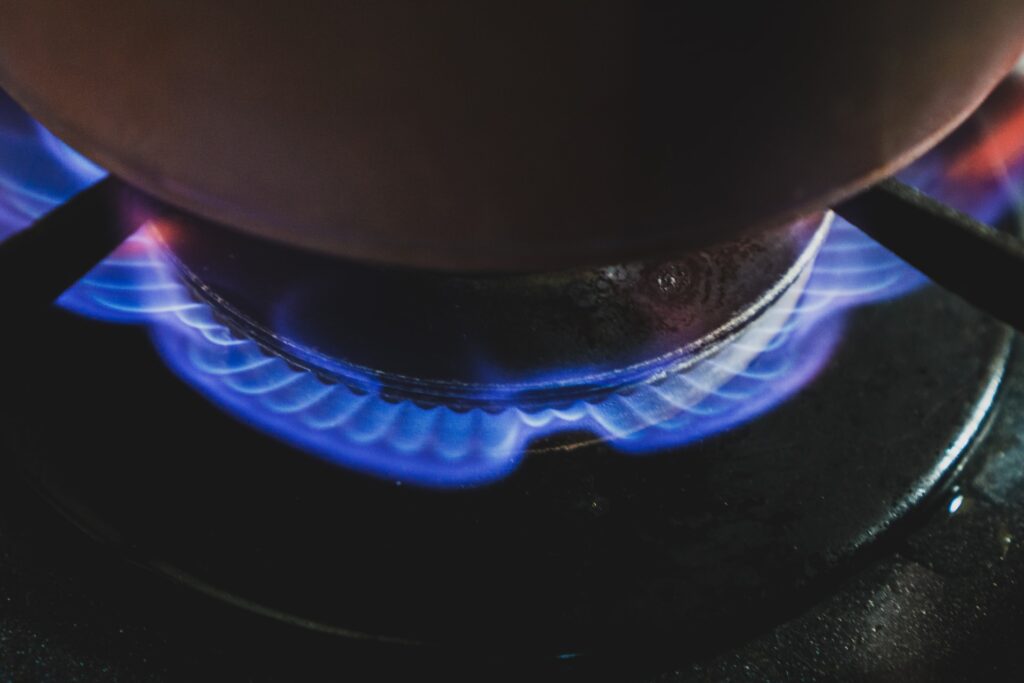When it comes to kitchen appliances, one of the most common questions homeowners have is whether a gas stove requires a dedicated circuit. With modern kitchens becoming more equipped and efficient, it’s essential to understand the electrical requirements of different appliances. In this article, we’ll discuss whether a gas stove needs a dedicated circuit, considering safety, electrical needs, and practicality.
For decades, gas stoves have been a kitchen essential. They offer precise heat control and are favoured by professional chefs and home cooks. As homeowners upgrade their kitchens, questions arise about does a gas stove need a dedicated circuit.
Table of Contents
Does a Gas Stove Need a Dedicated Circuit?

Certainly, a common question that arises when installing or using a gas stove is whether it requires a dedicated circuit. The answer, in short, is no. Unlike electric stoves that draw significant power and often need their dedicated circuit to prevent overloading, gas stoves operate differently.
Gas stoves primarily rely on natural gas or propane to provide the heat needed for cooking. They do not consume electricity for heating purposes but require electricity for some components. These components include the ignition systems, clock/timer functions, and sometimes built-in lights. These electrical elements, however, consume very little power compared to electric stoves.
The electrical requirements of a gas stove are usually quite modest, with the power consumption typically ranging from 120 to 600 watts. This power usage level is well within the capabilities of a standard household electrical circuit. Therefore, a dedicated circuit is not necessary for a gas stove. You can put it into a standard outlet that shares a circuit with other low-power appliances.
However, it’s important to note that while a dedicated circuit might not be required, it’s advisable to avoid overloading a circuit by connecting multiple high-power appliances. Consulting a qualified electrician is prudent if you’re considering installing a gas stove and have concerns about your electrical setup. They can assess your electrical system and ensure that it can handle the combined load of your appliances without any safety risks.
When a Dedicated Circuit Might be Necessary for Gas Stoves:

A dedicated circuit for gas stoves becomes necessary when your kitchen setup includes an electric ignition system, safety features, or additional electrical components. This separate circuit ensures the stove’s power needs are met without overloading your electrical system. It enhances safety, prevents tripped breakers, and ensures optimal performance for your gas stove.
The Electrical Components of Gas Stoves:
When it comes to gas stoves, understanding their electrical requirements is essential for safe and efficient operation in your kitchen. While gas stoves primarily rely on gas for cooking, they have certain electrical components that play a crucial role in their functionality.
The key electrical components in a gas stove include the ignition system, control knobs, timers, and in some models, even built-in lights. These components require electricity to function properly. The ignition system, for example, uses an electric spark to ignite the gas and begin the cooking process. Similarly, control knobs and timers are operated electrically, enhancing the convenience and precision of your cooking experience.
The power consumption of these electrical components is relatively low, typically ranging from 120 to 600 watts. This level of power usage is manageable for standard household electrical circuits. As a result, gas stoves can be connected to existing outlets that are part of general kitchen circuits.
While a dedicated circuit is not mandatory for gas stoves, it’s important to consider the overall electrical load on the circuit. If you have other high-power appliances sharing the same circuit, such as a microwave or toaster oven, it’s advisable to avoid overloading it. Overloading a circuit can lead to tripped breakers or potential safety hazards.
Electrical Requirements of a Gas Stove:
Gas stoves require specific electrical requirements for safe and proper operation. Here are some electrical requirements of a gas stove:
1. Power Source and Voltage
Despite primarily using natural gas or propane for cooking, gas stoves often have certain electrical components that require power. These components include electronic ignition systems, control panels, timers, and lights. Typically, gas stoves require a standard electrical supply of 120 volts. This voltage is common in most households and ensures the proper functioning of these auxiliary components.
2. Circuit Amperage
When installing a gas stove, it’s essential to consider the circuit amperage required to power the electrical components. The amperage can vary depending on the specific model and features of the stove. On average, gas stoves may draw around 5 to 15 amps of current. It’s recommended to consult the manufacturer’s specifications or the stove’s user manual to determine the exact amperage requirement.
3. Outlet Type
Gas stoves with electrical components typically come with a power cord that needs to be plugged into a corresponding outlet. The outlet should match the voltage (120 volts) and amperage requirements of the stove. Depending on local electrical codes and regulations, the outlet is usually a standard 3-prong or 4-prong outlet. If your home doesn’t have a suitable outlet near the stove’s location, consulting an electrician to install one is recommended.
4. Grounding
Correct grounding is necessary to protect your gas stove’s electrical components. Grounding helps prevent electrical shocks and reduces the risk of electrical fires. Gas stoves should be connected to a grounded outlet to ensure potential electrical faults are safely directed away from the appliance. If you need clarification on grounding your stove’s outlet, consulting a professional electrician can provide the necessary guidance.
Electrical Safety Considerations with Gas Stoves:

Although gas stoves are generally safe, some electrical safety considerations are associated with their operation. The 6 considerations encompassed are as follows:
1. Proper Grounding for Safety
Ensuring proper grounding of your gas stove’s electrical components is a critical safety consideration. Grounding prevents electrical shocks by allowing excess electrical energy to dissipate harmlessly into the ground. This is especially important for gas stoves with electronic ignition systems and control panels. Always plug your stove into a grounded outlet and avoid using adapters or removing the grounding prong from the power cord.
2. Regular Inspection of Power Cords
Inspecting the power cord of your gas stove regularly is a simple yet effective safety practice. Look for signs of wear, fraying, or exposed wires along the length of the cord. Damaged cords can pose serious electrical risks and should be replaced immediately. When replacing a power cord, ensure that the new cord meets the manufacturer’s specifications and is rated for the amperage of your stove.
3. Avoid Overloading Circuits
Gas stoves with electrical components, such as ignition systems and timers, draw power from your home’s electrical supply. To prevent overloading circuits, refrain from connecting multiple high-power appliances to the same circuit. Ideally, provide your gas stove with a dedicated circuit to accommodate its electrical requirements. Overloaded circuits can lead to tripped breakers, electrical fires, and compromised appliance performance.
4. Proper Outlet Type and Amperage
Using the correct outlet type and amperage for your gas stove is paramount for safety. The outlet should match the stove’s voltage requirement (usually 120 volts) and amperage draw. Using an outlet with insufficient amperage can result in overheating and pose a fire hazard. It’s advisable to consult the stove’s manual or the manufacturer’s specifications to determine the appropriate outlet type and amperage for your specific model.
5. Professional Installation and Maintenance
When it comes to gas stoves with electrical components, professional installation, and maintenance are strongly recommended. Certified electricians can assess your kitchen’s electrical capacity and ensure your stove is safely connected to an appropriate circuit. Professionals can also inspect and maintain the stove’s electrical components, detecting potential issues before they escalate into safety hazards.
6. Keep the Area Clean and Dry
Keeping a clean and dry environment around your gas stove is not only hygienic but also contributes to electrical safety. Clean up spills promptly to prevent liquids from coming into contact with electrical components. Water or moisture entering electrical parts can lead to short circuits and malfunctions. Regularly wiping down the control panel and surrounding areas minimizes the risk of electrical problems.
Electrical Amps for Your Gas Stove: What You Need to Know
When it comes to understanding the electrical requirements of your gas stove, the question of how many amps are required often arises. While gas stoves primarily rely on gas for cooking, they have electrical components that play a crucial role in their operation. Let’s break down the amps needed for your gas stove and why it matters.
The Role of Electrical Components:
Despite their name, gas stoves are only partially free from electrical needs. Modern gas stoves often feature electronic ignition systems, which provide the convenience of instant ignition without the need for a pilot light. These ignition systems use a small electric spark to ignite the gas, ensuring a safe and efficient cooking experience.
Understanding Amps:
Short for amperes, amps measure the current flow through an electrical circuit. In simpler terms, they indicate the amount of electricity an appliance draws when used. For gas stoves, the electrical demand is relatively low compared to appliances like refrigerators or air conditioners. The average gas stove’s electrical requirement typically exceeds 2 to 4 amps.
Importance of Knowing Amp Requirements:
Understanding the amps required for your gas stove is essential for several reasons. Firstly, it helps ensure your kitchen’s electrical circuit can handle the load without overloading. Overloading a circuit can lead to tripped breakers and potential safety hazards. Secondly, knowing the amps helps when considering electrical upgrades or renovations in your kitchen.
Determining Amps for Your Gas Stove:
You can check the appliance’s manual or the manufacturer’s label to determine the specific amps required for your gas stove. This label is usually located near the gas connection or on the back of the stove. It will provide valuable information about the stove’s electrical specifications, including the amps it draws during operation.
Factors That Influence Amps:
Several factors can influence the amps required by your gas stove. The presence of electronic features, such as digital displays, timers, and smart technology, can increase the electrical demand slightly. Additionally, larger gas stoves with multiple burners and advanced functionalities might require a slightly higher amp draw.
Ensuring Safe Electrical Usage:
Ensuring safe electrical usage involves more than knowing the amps required for your gas stove. It’s important to have a properly grounded electrical system to prevent shocks and potential hazards. Regular maintenance checks of gas and electrical components contribute to a safe and efficient cooking environment.
Consulting a Professional:
If you need more clarification about the electrical requirements of your gas stove or if you’re planning a kitchen renovation, consulting a professional electrician is a wise step. An electrician can assess your kitchen’s electrical infrastructure, recommend any necessary upgrades, and ensure your gas stove operates safely within the electrical system.
Conclusion:
At the end of this article, it’s clear whether a gas stove needs a dedicated circuit isn’t a one-size-fits-all answer. While gas stoves primarily rely on gas for cooking, the presence of electrical components such as ignition systems and electronic features introduces a modest level of electrical demand.
The decision to install a dedicated circuit depends on various factors, including the overall electrical load in your kitchen, the type of gas stove you have, and the potential for future upgrades. Balancing safety, convenience, and energy efficiency is paramount. Consulting with a skilled electrician can assist you in navigating these considerations, ensuring your kitchen remains a functional and secure space for culinary creativity.
Can I connect my gas stove to the same circuit as other kitchen appliances?
While it’s possible, it’s not recommended. Sharing a circuit with other appliances can lead to overloads and tripped breakers, affecting the performance of your gas stove.
Are there any safety risks associated with not having a dedicated circuit?
Yes, voltage fluctuations could damage sensitive electrical components in your gas stove without a dedicated circuit, leading to potential safety hazards.
Do older gas stoves also require dedicated circuits?
Older gas stoves with basic mechanical features may not necessarily require a dedicated circuit. However, it’s still advisable to consult an electrician to ensure safety.



